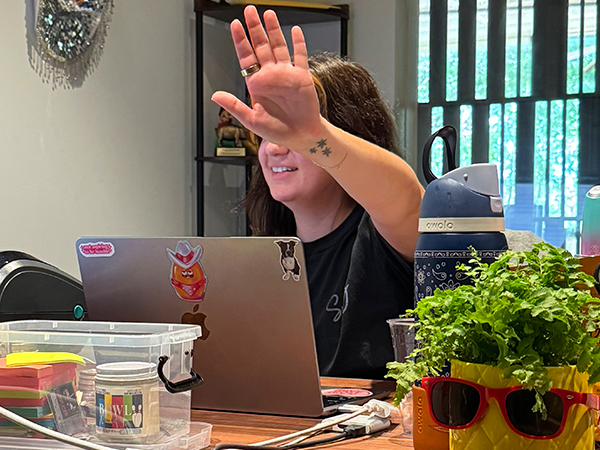Embracing the Pay It Forward Philosophy: Transforming Lives Together

Key Takeaways

- Understanding the Concept: “Pay it forward” means performing acts of kindness for others without expecting anything in return, fostering a culture of generosity that can benefit businesses and communities alike.
- Personal and Societal Benefits: Engaging in kindness enhances your happiness, promotes better mental and physical health, strengthens relationships, and initiates positive changes within society and customer environments.
- Effective Business Practices: Implementing “pay it forward” strategies, such as customer pay-it-forward programs and community service days, can boost customer loyalty, enhance employee satisfaction, and improve overall brand reputation.
- Real-Life Impact: Simple acts, like coffee shop chains paying for the next person’s drink, exemplify how small gestures of kindness can inspire larger community movements and encourage a supportive atmosphere.
- Recognizing Challenges: Misinterpretations of kindness as transactional and limitations in altruism can hinder the effectiveness of “pay it forward” initiatives; clear communication and strategic planning are essential to overcoming these barriers.
- Community Engagement: Partnerships with other businesses and initiatives like workshops and donation drives can strengthen community ties and promote a sustainable culture of kindness, ultimately benefiting your business’s growth.
Imagine a world where kindness sparks a chain reaction, transforming lives one act at a time. The concept of “pay it forward” invites you to embrace this idea, encouraging you to do something good for someone else without expecting anything in return. This simple yet profound philosophy can create a ripple effect, inspiring others to continue the cycle of generosity.
In today’s fast-paced society, it’s easy to overlook the power of small gestures. Whether it’s helping a stranger or supporting a friend in need, each act of kindness contributes to a more compassionate community. By understanding the essence of paying it forward, you can become part of a movement that fosters connection and positivity, making a lasting impact on those around you.
Understanding Pay It Forward

“Pay it forward” encourages you to perform acts of kindness without seeking anything in return. This concept fosters a culture of generosity that can positively impact your small business and community.
Definition and Concept
Paying it forward means doing something good for someone else, helping them without expecting repayment. In a small business context, this can manifest in customer service initiatives or team management strategies. For instance, providing exceptional service can lead customers to refer others to your business. These chains of kindness can enhance customer retention and brand loyalty.
Historical Background
The origins of “pay it forward” trace back to philosophical and literary sources. In 1916, author Clarence Allen first coined the phrase in his book “Each One, Teach One.” The concept gained further popularity through various movements, highlighting the importance of community and support. As a small business owner, understanding this historical context can streamline your marketing strategy, reinforcing how acts of kindness drive business growth and enhance customer experience. By embracing this philosophy, you can create a business model centered around generosity, potentially leading to improved sales management and customer acquisition efforts.
The Impact of Pay It Forward

The “pay it forward” philosophy significantly impacts both personal lives and business environments. Engaging in acts of kindness without expecting anything in return fosters a culture of generosity.
Personal Benefits
Consider the personal benefits for those who embrace this philosophy. Happiness and Wellbeing: Research indicates spending on others boosts your happiness more than spending on yourself. Acts of kindness elevate mental health and promote physical well-being. Social Connections: Generosity strengthens your relationships, building a supportive community, which is vital in small business environments. Health Benefits: Engaging in kindness reduces stress and enhances overall well-being, allowing you to maintain sharp focus on your business goals and employee management.
Societal Changes
Paying it forward initiates broader societal changes. Communities thrive when individuals contribute positively. These acts lead to enhanced customer service within small businesses, improving customer retention through loyalty. By integrating kindness into your business operations, you create an environment that fosters collaboration and operational efficiency. This approach enhances your brand management and marketing strategy, establishing a positive reputation that attracts new customers and nurtures existing relationships. Engaging with your community through “pay it forward” gestures can also influence your business development efforts and expand your market reach.
Pay It Forward in Action

The “pay it forward” concept manifests itself through various initiatives that promote kindness and goodwill in your community. Implementing these actions can strengthen relationships and enhance your small business operation.
Real-Life Examples
- Chain of Kindness:
In many coffee shops, customers pay for the drink of the person behind them in line. This chain, once started, can continue for hours, showcasing how kindness breeds more acts of generosity. Such real-life examples may inspire your team to engage in similar behaviors, fostering a positive workplace culture.
- Volunteer Days:
You can organize volunteer days for your small business where employees participate in community service. Examples include local park clean-ups, charity runs, or food bank support. Engaging in these activities improves team collaboration and enhances employee satisfaction.
- Customer Pay It Forward Programs:
Implement a program where customers can contribute a small amount to a fund that helps others in need within the community. This not only demonstrates your commitment to social responsibility but also builds customer loyalty, enhancing customer retention.
Community Initiatives
- Local Business Collaborations:
Form partnerships with other small businesses to create community events promoting local products and services. By working together, you can increase visibility and contribute to overall community growth, all while enhancing your marketing strategy.
- Donation Drives:
Launch donation drives, encouraging customers to contribute items for local shelters or food banks. This civic engagement showcases your brand management and solidifies your reputation as a community leader.
- Workshops and Training Sessions:
Offer workshops focusing on skill development for local youths or entrepreneurs in your area. Providing valuable resources can help others elevate their business practices, improving overall operational efficiency in the local landscape.
By actively participating in community initiatives and encouraging your employees to engage in acts of kindness, your small business can thrive while making a meaningful impact.
Challenges and Critiques

The “pay it forward” concept faces several challenges and critiques that may impact its effectiveness in small business settings.
Misinterpretations
Misinterpretations of “pay it forward” can hinder its intended impact. Some individuals may view acts of kindness as transactional, expecting immediate returns. This misperception can lead to disappointment within teams, as staff members may not fully understand the philosophy behind these behaviors. Clear communication about the purpose of kindness initiatives promotes better employee management and fosters a culture of generosity. Aligning these actions with your business goals builds trust and encourages a positive work environment.
Limitations of the Concept
The limitations of the “pay it forward” concept can affect its adoption in small business operations. Altruism and indirect reciprocity drive kindness, but inequity aversion can limit actions. Employees may hesitate to engage in giving if they perceive their efforts as going unnoticed or undervalued. Additionally, social norms in your community can influence participation levels. You may need to assess these dynamics and address them through strategic planning and effective leadership. Emphasizing employee training on kindness and its benefits can enhance overall productivity and improve team dynamics, ultimately supporting customer retention and business growth.
Conclusion
Embracing the “pay it forward” philosophy can transform not only your life but also the lives of those around you. By performing simple acts of kindness you create a ripple effect that fosters a compassionate community. This culture of generosity not only enhances personal connections but also boosts your business’s reputation and customer loyalty.
As you integrate kindness into your daily routine and business practices you’ll likely notice the positive changes it brings. Remember that every small gesture counts and can lead to significant societal shifts. By committing to this philosophy you’re not just making a difference today but also paving the way for a brighter future for everyone involved.
Frequently Asked Questions
What does “pay it forward” mean?
The “pay it forward” concept encourages individuals to perform acts of kindness without expecting anything in return. It promotes the idea that small gestures can inspire others to continue this cycle of generosity, ultimately fostering a more compassionate community.
How can “pay it forward” benefit small businesses?
By embracing the “pay it forward” philosophy, small businesses can enhance customer service, foster collaboration, and improve brand reputation. Acts of kindness create customer loyalty and can drive business growth, making the community stronger and more connected.
What historical background does “pay it forward” have?
The phrase “pay it forward” was first coined by author Clarence Allen in 1916. It emphasizes supporting and helping others within the community without expecting rewards, highlighting the importance of generosity throughout history.
What are some practical examples of “pay it forward”?
Practical examples include initiating a “chain of kindness” in coffee shops, organizing volunteer days for employees, and implementing customer pay-it-forward programs. These initiatives enhance community support and strengthen relationships, benefiting both customers and businesses.
What challenges does “pay it forward” face in business?
Challenges include potential misinterpretations, where kindness may be seen as transactional, leading to disappointment. Additionally, inequity aversion and social norms can hinder its adoption, making clear communication and strategic planning essential for success.
How can acts of kindness affect mental health and happiness?
Engaging in acts of kindness can significantly boost happiness and improve mental health. By fostering social connections and a sense of community, individuals experience increased well-being and a more positive outlook on life.
Can “pay it forward” lead to societal change?
Yes, when individuals contribute positively by “paying it forward,” communities can thrive. This cycle of kindness can lead to widespread societal change, creating environments where acts of generosity and compassion are the norm.
How can businesses promote a culture of kindness?
Businesses can promote kindness by providing employee training on the importance of generosity, setting up community initiatives like donation drives, and encouraging staff to engage in acts of kindness, ultimately enhancing team dynamics and customer relationships.
Image Via Envato
This article, "Embracing the Pay It Forward Philosophy: Transforming Lives Together" was first published on Small Business Trends
What's Your Reaction?
 Like
0
Like
0
 Dislike
0
Dislike
0
 Love
0
Love
0
 Funny
0
Funny
0
 Angry
0
Angry
0
 Sad
0
Sad
0
 Wow
0
Wow
0






























































































